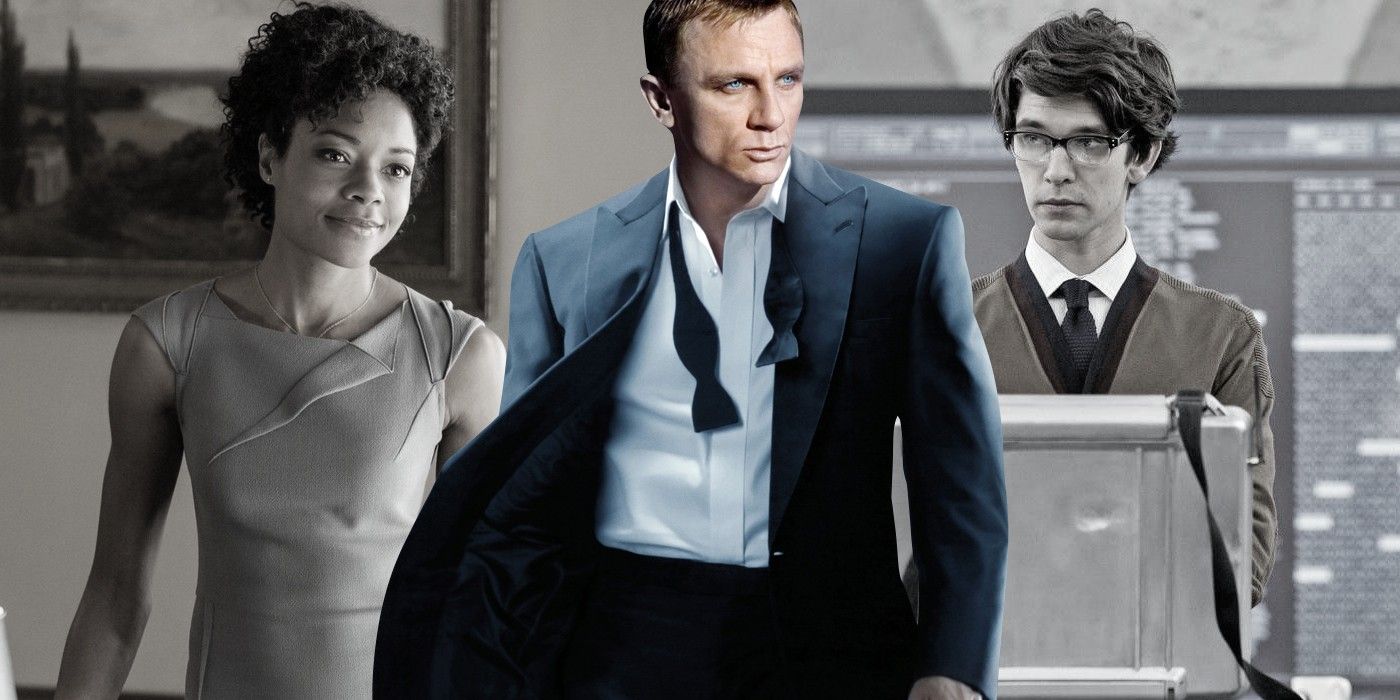The James Bond franchise should break from tradition and recast all of its supporting characters after No Time To Die. The twenty-fifth film in the James Bond franchise has endured a lengthy and troubled production. After heavy speculation over whether Daniel Craig would return for another stint as 007 (mostly fueled by the actor himself), Danny Boyle departed as the film's directed over a clash of creative vision against Bond's long-standing producers. After finally gaining a semblance of stability, No Time To Die was one of the first movies to be pushed back due to the worldwide coronavirus pandemic, and will now release in November 2020 instead of April.
Daniel Craig has already confirmed that No Time To Die will be his final James Bond film, and the race for a new 007 will soon begin. But Bond has a tradition whereby the arrival of a brand new leading man doesn't necessarily mean other characters are also recast. For example, Judi Dench originally appeared as M during the Pierce Brosnan era, even though most fans prefer her more recent performances. Similarly, Desmond Llewelyn played MI6's Q for over 30 years, outliving many an incarnation of 007. While this practice is part of Bond's DNA, it makes sense to stop after No Time To Die, and recast all of the recurring supporting characters such as M, Moneypenny, Q and Felix.
Firstly, Daniel Craig's tenure as James Bond has been a largely self-contained affair, telling a single, overarching story from Casino Royale to No Time To Die. Fans have followed this iteration of Bond from a rookie 00-agent to a veteran being dragged out of retirement for one last mission, whereas previous versions of the character would appear fully-formed and disappear without explanation, free from the same connectivity Craig's movies have been bound by. Because of this, it would be jarring if Ralph Fiennes' M or Ben Whishaw's Q appeared in Bond 26 and failed to acknowledge that their dashing top secret agent no longer looked like Daniel Craig.
More importantly, the mindset of a movie audience in 2020 is very different to that of the 1960s. When James Bond began, the departure of Sean Connery wasn't an automatic reason to recast Llewelyn as Q, or Bernard Lee as M, for example. If the supporting cast were happy to stay and performing well in the role, then the switching of Bonds was no cause for further cast upheaval. But ever-evolving trends and tastes mean this no longer applies in 2020. The franchise is king in the modern movie industry, with shared universes becoming increasingly common, and this means an audience is actively looking for connectivity between films more than ever before, struggling to suspend their disbelief if something doesn't logically add up. This phenomenon is not exclusive to James Bond either. Michael Gough served as Alfred across 3 separate incarnations of Batman in the 1980s and 1990s, and few eyebrows were raised. But if Michael Caine or Jeremy Irons had been cast as the famous butler in The Batman, fans undoubtedly would've had questions.
The same is true of Bond's supporting characters. The only way the iconic franchise can properly move forward into a new post-Daniel Craig era is to completely recast the key MI6 roles. Of course, that isn't to say the Daniel Craig Bond films haven't featured some amazing supporting talent. Fiennes, Dench and Whishaw have all left a legacy as M and Q, respectively, while Naomie Harris as Moneypenny and Jeffrey Wright as Felix Leiter have helped redefine their characters for modern times. Despite standout performances across the board, however, No Time To Die should mark the final appearances of each, giving the next James Bond an entirely fresh start.



